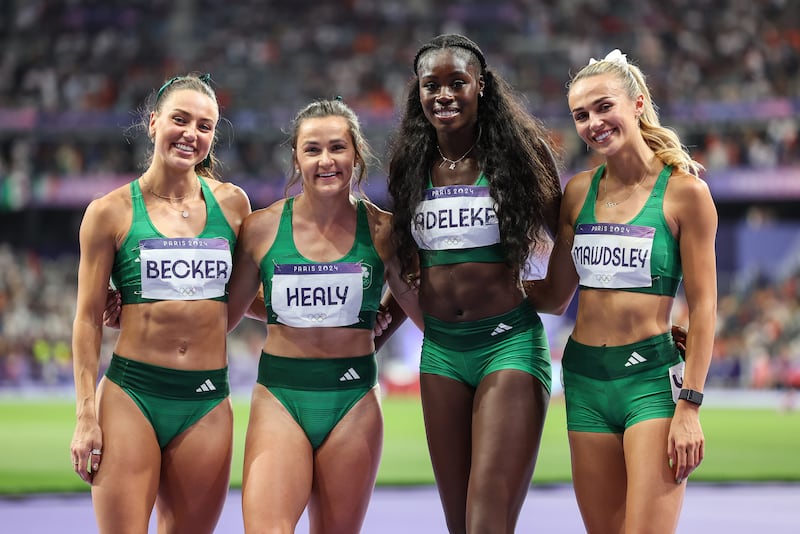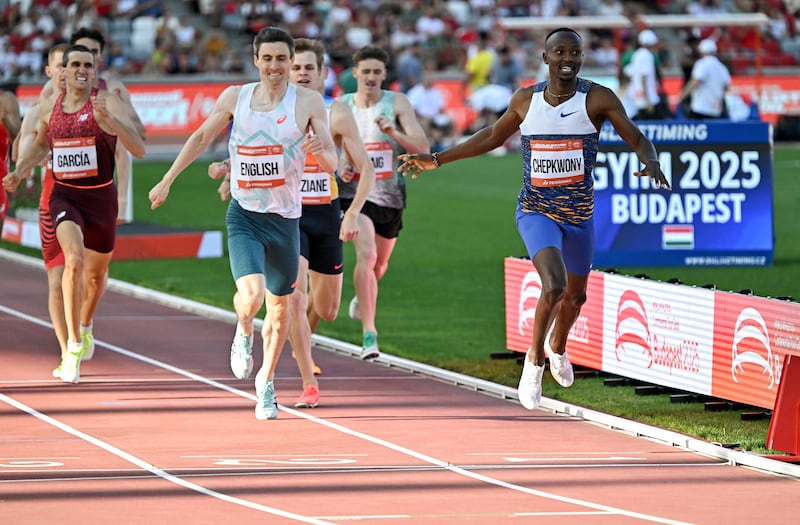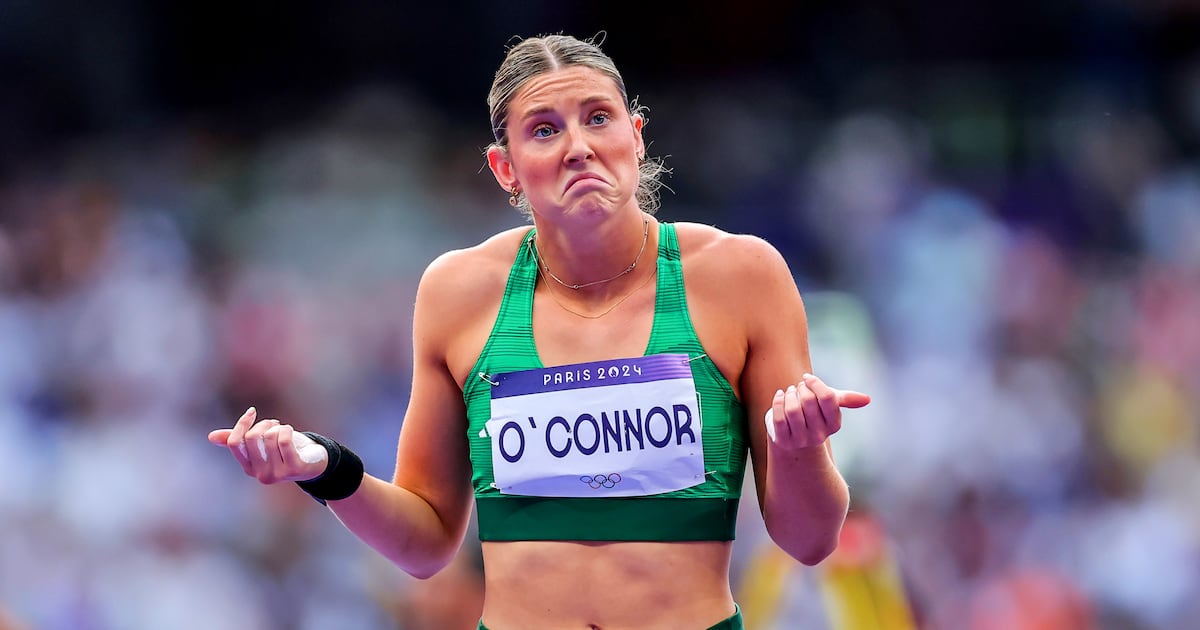The resounding message after the Irish women’s 4x400m relay finished fourth in the Paris Olympics last summer – just .18 of a second off bronze, remember – was how this upward trajectory was likely to continue.
At least until the 2025 World Athletics Championships in Tokyo, when if everything went to plan they might just make it on to the medal podium.
After that quartet comfortably qualified for Tokyo at the World Athletics Relays in Guangzhou, China, at the start of May, a similar sense of confidence prevailed, and the hopes of a medal too.
Sport Ireland had also given substantial backing to the project, with Sharlene Mawdsley and Sophie Becker joining Rhasidat Adeleke on the maximum grant amount of €40,000, with Chris O’Donnell also boosted to this podium level of funding for his role in the mixed 4x400m relay.
“I think we have solidified ourselves as one of the best relays in the world, and we’re just continuing that on,” Adeleke said in Guangzhou. “I’m building every race and getting back into shape and I’m really excited to see what this season holds for all of us, individually and as a team.”
Despite her genuine relay enthusiasm, Adeleke was always going to prioritise her individual 400m interests, having also finished fourth in her individual event in Tokyo, and at the 2023 World Championships in Budapest. Now those interests have ended for 2025, Adeleke calling time of her season after “lingering injuries and continuous setbacks” left her unable to train and perform at her desired level.
With that she also leaves a big hole to be filled in the women’s 4x400m relay, which after Adeleke’s individual medal hopes, was arguably the best chance of an Irish medal in Tokyo.
Mawdsley and Becker have been performing well on an individual front, but are so far off their best times of 50.71 and 51.13 respectively, both clocked last season, compared to 50.93 and 51.69 in 2025. Phil Healy, the third member of the 4x400m quartet in Paris, has a best of 54.58 this season, compared to her lifetime best of 51.50.
Although getting to the final in Tokyo is not beyond their abilities, the lack of progress or further depth this season won’t make that task any easier.
 Ireland’s 4x400m relay team: Sophie Becker, Phil Healy, Rhasidat Adeleke and Sharlene Mawdsley. Photograph: Morgan Treacy/Inpho
Ireland’s 4x400m relay team: Sophie Becker, Phil Healy, Rhasidat Adeleke and Sharlene Mawdsley. Photograph: Morgan Treacy/Inpho
The mixed 4x400m relay, which also qualified for Tokyo via Guangzhou, didn’t progress beyond the heats in Paris. Jack Raftery has definitely added depth there, running 44.98 seconds last month, although O’Donnell hasn’t broken 46 seconds this year, and is only ranked sixth-fastest Irishman this so far season.
Mawdsley also qualified for the individual 400m for Tokyo, among the 17 remaining Irish athletes currently with individual qualifying standards, or currently sitting within the qualification quota. This Sunday marks the closing date for performances to be included in the qualification process, after which World Athletics will announce the final list of invited athletes.
[ What’s behind Rhasidat Adeleke’s withdrawal from the World Championships?Opens in new window ]
European Indoor 3,000m champion Sarah Healy has the qualifying standard in the 1,500m, and is currently leading the Diamond League standings going into the final in Zurich on Wednesday week. Her lifetime best of 3:57.15, clocked this season, ranks her 13th fastest in the world this year, and her first goal in Tokyo will be to make the final, which is certainly within her reach.
At the Diamond League in Silesia, Poland, last Saturday, Healy had to settle for ninth, clocking 3:57.95, underlining her consistency, but a reminder nonetheless of just how competitive things will be in Tokyo. “It was an okay day for me,” Healy said, “not amazing, not too bad”.
Sophie O’Sullivan also has the individual 1,500m qualifying time, but has missed several weeks of training due to a stress reaction in her leg, and certainly won’t be at her race fittest in time for Tokyo.
 Mark English is in the form of his life. Photograph: Attila Kisbenedek/Getty Images
Mark English is in the form of his life. Photograph: Attila Kisbenedek/Getty Images
Mark English is in the form of his life, the 32-year-old last week breaking his own Irish 800m record for the third time this season when clocking 1:43.37 to finish second at the Gyulai István Memorial in Budapest.
English had clocked 1:44.34 in Poland in May and then 1:43.92 in Hengelo, the Netherlands, in June, and looks capable of making the final in Tokyo if he can maintain this level of consistency.
Kate O’Connor is currently ranked fifth in the world after her heptathlon Irish record of 6,487 when striking gold at the World University Games last month, and the 24-year-old is improving with every competition.
In the absence of Adeleke, she might also represent Ireland’s best hope of getting close to the medal podium in Tokyo.
